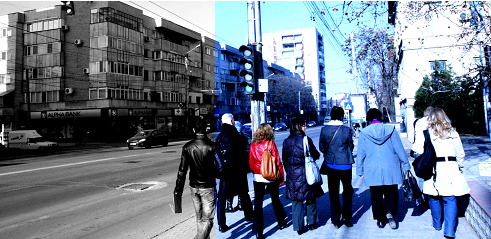Xploit Project Results in short
Exploitation and Learning Communities
Common Criteria for Learning Communities
Serious Challenges to Learning Communities
Practical Guide
to Learning Community Initiatives
Other useful materials from the project
Learning Communities - The Drivers
Special needs, resources, strong needs for change or focuses can be drivers in the development of a learning community.

Whereas a learning city or a smart city might be established top-down by political declaration and thus be a part of a political agenda, a learning community is likely to be established step by step and based on a special focus, a special need, a special interest or a special occasion (such as a new partnership in the community or the participation in European projects) addressed by one or more organisations or groups of citizens in the community.
Thus learning cities and learning communities are not alternatives, as they operate at different levels and in different contexts, but more like complementary movements.
Learning communities are by definition initiated bottom-up and include community players at practice level, working closely with groups of citizens in different circumstances.
This means that learning communities are developed through long processes of communication and collaboration in the communities, often starting with a small team of community players and then widening the circles to embrace larger parts of the community.
So, most learning communities will be initiated from a special focus, a special need or a special interest. This is what we call a “driver” of the learning community, but terms like engine, hub, incubator or catalyst are useful to create a sense of what is meant.
Such drivers can be very different – from a European project being implemented in a community to addressing a special social need among elderly. A driver can be simple or complex (linking a number of drivers together).
In this section we present and briefly describe some typical drivers and how they might drive forward an emerging learning community. To some of the drivers we attach a case from the Xploit communities. These texts are written by the communities themselves and refer to a rich and interesting community material on learningcommunities.eu.
In support of your learning community interest, you might wish to simulate such a driver scenario yourself – to be able to design your actions and to anticipate threats and opportunities.
However different the drivers and the communities might be, there are a number of challenges that all emerging and operating learning communities should be especially aware of. The most important are:
- The role of public authorities in learning communities
- The role of cross-sector partnerships in learning communities
- The quality and authenticity of involvement and inclusion in learning communities
- To what extent real impact and change is produced
- The competences of community players
- Sustainability of the partnerships
- The ongoing creation of new infrastructures that work
- Necessary funding

